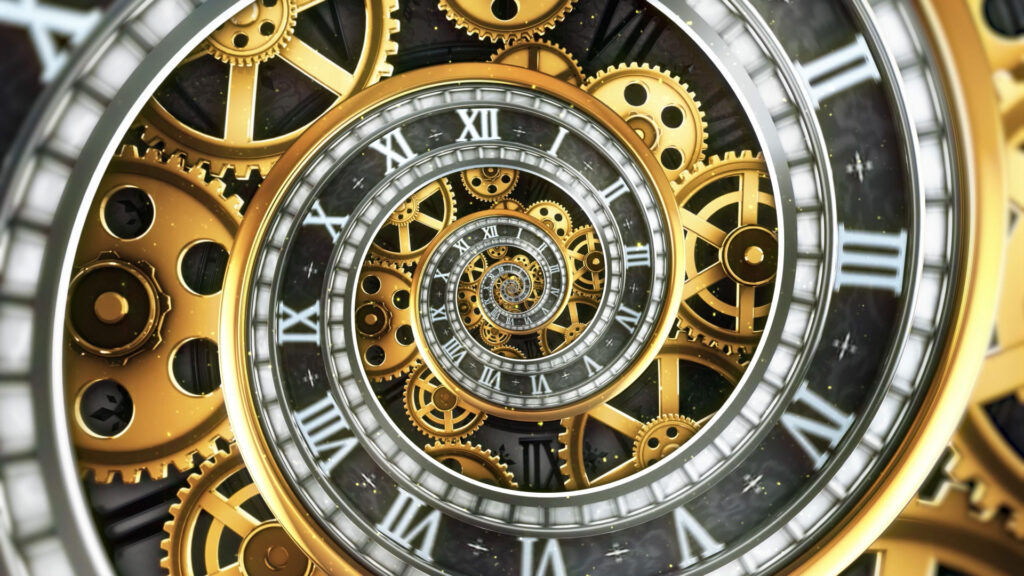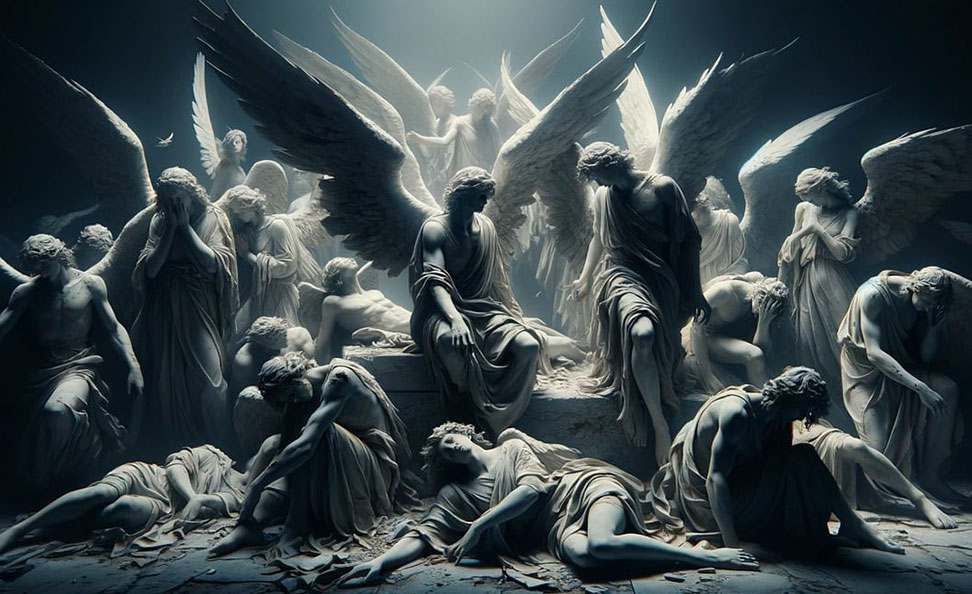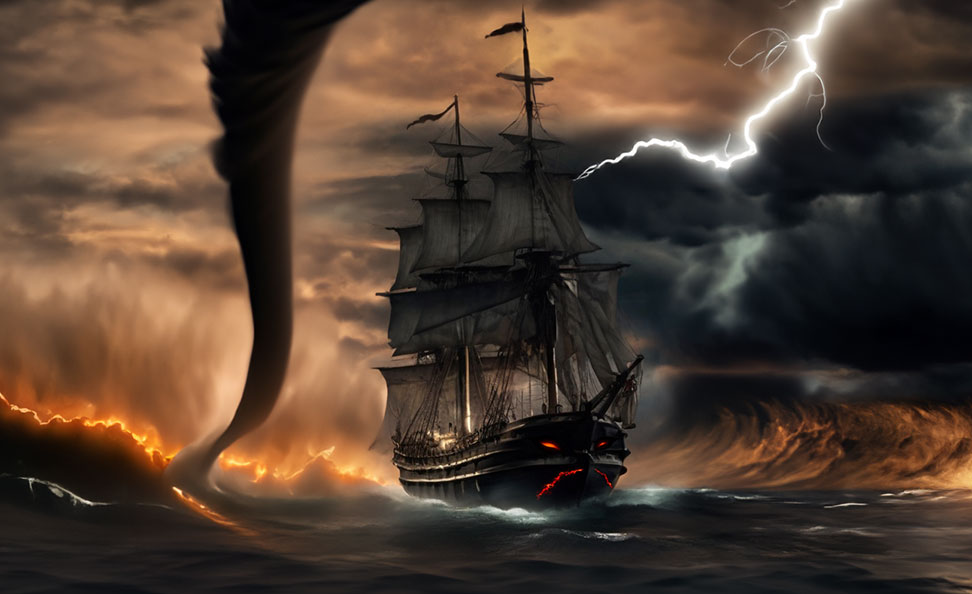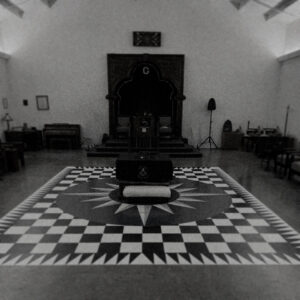Roberto Calvi, known as “God’s Banker,” was a high-ranking Italian banker with close ties to the Vatican, and a member of the Masonic Lodge Propaganda Due (P2).
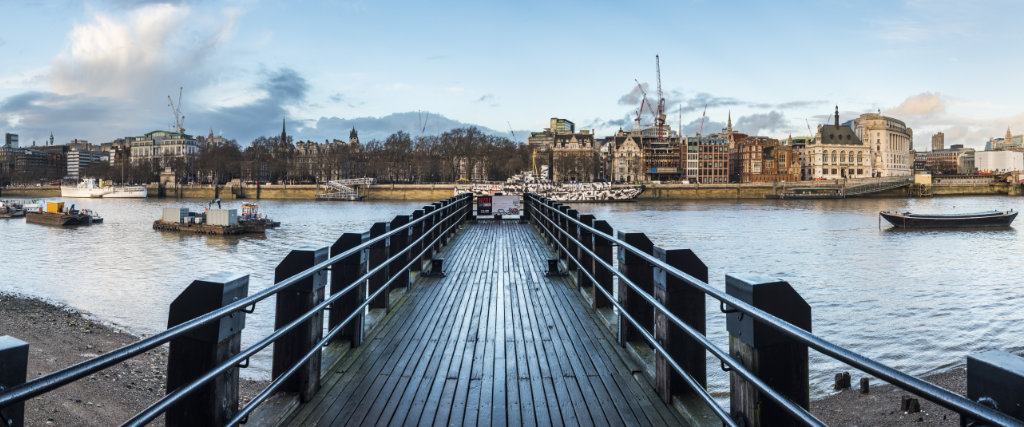
In 1982, he was convicted of currency smuggling and the collapse of Banco Ambrosiano, the bank he had led. But his downfall was just the tip of the iceberg. Rumors and theories have long circulated about Calvi’s connections to a secret Masonic Lodge known as Propaganda Due (P2) and its alleged involvement in his financial dealings and his mysterious death.
This article will delve into the evidence linking Calvi to P2 and the dark secrets that may have led to his downfall and possible murder. From the inner workings of the Vatican, to the political scandals and criminal activities of the Masonic Lodge, this is a story you won’t be able to put down.
"God's Banker" Roberto Calvi and the secret Masonic Lodge Propaganda Due
Roberto Calvi
Roberto Calvi, known as “God’s Banker,” was a high-ranking Italian banker with close ties to the Vatican. Born in 1920, Calvi began his career as a banker in the 1950s, eventually rising to the position of Chairman of Banco Ambrosiano, one of Italy’s largest private banks. However, despite his success in the financial world, Calvi’s dealings were not without controversy.
Calvi’s nickname “God’s Banker” was due to his close ties to the Vatican. He had been appointed by the Pope as the Vatican’s main financial advisor, and Banco Ambrosiano had been the Vatican’s main bank for many years. This relationship along with his Masonic Lodge ties allowed Calvi to gain significant influence and power within the Catholic Church. However, it also made him a target for investigation and criticism from those who believed that the Vatican had too much control over the financial world.
Calvi’s downfall began in 1982, when he was convicted of currency smuggling and the collapse of Banco Ambrosiano. The bank had been facing financial difficulties for some time, and it was discovered that Calvi had been involved in a complex web of financial dealings that had contributed to its collapse. He was sentenced to four years in prison but jumped bail and went into hiding.
Calvi’s death in 1982, just a few days after he was convicted, added more mystery to his case. He was found hanged under Blackfriars Bridge in London, in what was initially ruled as a suicide. However, many people believed that he was murdered, as evidence of murder was found during the investigation. The death was later reclassified as a murder, and several people were charged and convicted of his murder, but the case remains controversial and many believe that the true culprits were never caught.
Calvi’s connections to the Vatican and his mysterious death have made him a figure of significant interest and speculation in the decades since his passing. Many believe that he was the victim of a conspiracy involving powerful figures within the Vatican, and that his death was an attempt to cover up their involvement in his financial dealings and the collapse of Banco Ambrosiano.
Currency Smuggling and the Collapse of Banco Ambrosiano
Roberto Calvi was the Chairman of Banco Ambrosiano, one of Italy’s largest private banks, for over a decade. However, despite his success in the financial world, Calvi’s dealings were not without controversy.
Calvi’s financial dealings were complex and often shrouded in secrecy. He had been involved in a number of financial schemes, many of which were considered to be highly speculative and risky. One of the most notable of these was the creation of a network of offshore companies, which were used to move large sums of money out of Italy and into other countries. These companies were owned by a number of shell companies and were often used to conceal the true ownership of the money.
Calvi was also involved in a number of other financial schemes that contributed to the collapse of Banco Ambrosiano. One of these was the creation of a number of loan participations, which were used to borrow money from other banks and then lend it out to various companies. These loan participations were often backed by assets that were either overvalued or non-existent, which led to significant losses for Banco Ambrosiano when the loans went bad.
In addition to these financial schemes, Calvi was also involved in a number of other activities that contributed to the collapse of Banco Ambrosiano. One of these was the creation of a number of fictitious accounts, which were used to conceal the true financial position of the bank. These accounts were often used to inflate the bank’s assets and make it appear that it was in a much better financial position than it actually was.
Calvi’s downfall began in 1982, when he was convicted of currency smuggling and the collapse of Banco Ambrosiano.
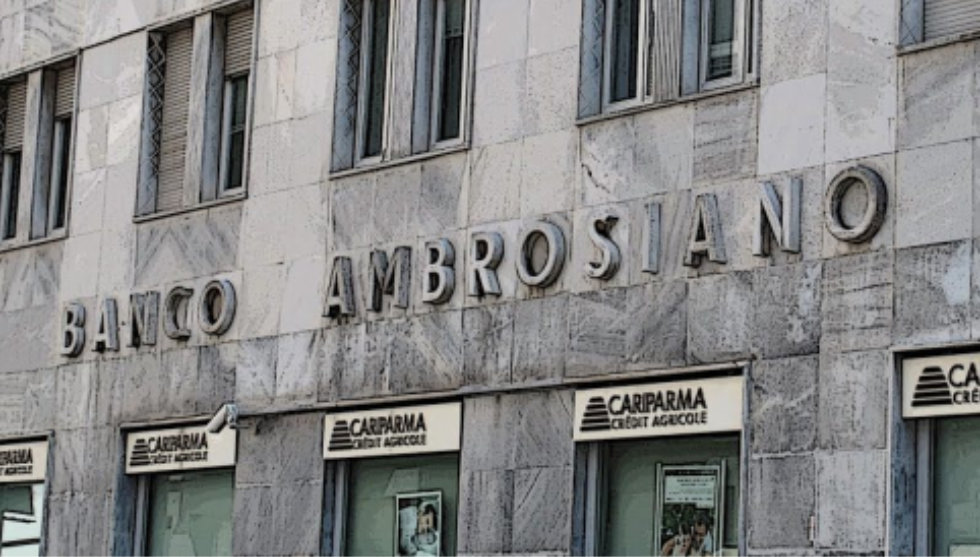
He was sentenced to four years in prison but jumped bail and went into hiding. He was later found hanged under Blackfriars Bridge in London, in what was initially ruled as a suicide. However, many people believed that he was murdered, as evidence of murder was found during the investigation. The death was later reclassified as a murder, and several people were charged and convicted of his murder, but the case remains controversial and many believe that the true culprits were never caught.
The collapse of Banco Ambrosiano caused a significant financial crisis in Italy, and led to the downfall of many other banks and financial institutions. It also resulted in significant losses for many of the bank’s customers and shareholders, and the Italian government was forced to bail out the bank to prevent a total collapse of the financial system.
The Masonic Lodge "Propaganda Due"
Masonic Lodge Propaganda Due (P2), Including its Origins, Membership, and Activities
The Masonic Lodge Propaganda Due (P2) was a secret Masonic Lodge that operated in Italy in the 1970s and 1980s. It was founded by Licio Gelli, a prominent businessman and Freemason, in the early 1970s. The lodge was dissolved by the Italian government in 1976, but it continued to operate in secret.
P2’s membership was composed of a diverse group of individuals, including politicians, business leaders, military officials, and members of the intelligence community. The membership list included over 1,000 names, including several high-ranking government officials, as well as members of the Italian parliament, the judiciary, and the military. It was also alleged that P2 had ties to organized crime and the Sicilian Mafia.
The activities of P2 were highly secretive and often shrouded in mystery. The lodge was known for its involvement in Italian politics and its alleged involvement in various scandals and criminal activities. It was alleged that P2 had played a role in the bribery scandals of the 1970s and 1980s, as well as in the collapse of Banco Ambrosiano, the bank led by Roberto Calvi, known as “God’s Banker”. P2 was also alleged to have been involved in the 1982 kidnapping and murder of former Prime Minister Aldo Moro, and in various plots to overthrow the Italian government.
P2 was also said to have had connections to various international organizations and intelligence agencies, including the CIA and the Israeli Mossad. It was alleged that P2 had been involved in various covert operations and had played a role in the Cold War-era politics of Italy and other countries.
P2’s activities came to light in 1981, when the Italian police discovered a list of P2 members during an investigation into a financial scandal. This led to a government investigation into the lodge and its activities, and several members were charged with various crimes. The Italian government banned P2 in 1981, but the lodge continued to operate in secret.
P2's Role in Italian Politics and its Alleged Involvement in Various Scandals and Criminal Activities, Including the Calvi Case
P2’s membership was composed of a diverse group of individuals, including politicians, business leaders, military officials, and members of the intelligence community. The membership list included over 1,000 names, including several high-ranking government officials, as well as members of the Italian parliament, the judiciary, and the military. It was also alleged that P2 had ties to organized crime and the Sicilian Mafia.
P2 was believed to have played a significant role in the bribery scandals of the 1970s and 1980s. The lodge was alleged to have been involved in a number of bribery schemes, in which politicians and public officials were paid off in exchange for political favors. P2 was also believed to have played a role in the collapse of Banco Ambrosiano, the bank led by Roberto Calvi, known as “God’s Banker”. Calvi was convicted of currency smuggling and the collapse of Banco Ambrosiano in 1982, and his death under mysterious circumstances added more mystery to the case.
P2 was also alleged to have been involved in the 1982 kidnapping and murder of former Prime Minister Aldo Moro. The kidnapping and murder of Moro, one of Italy’s most prominent politicians, sent shockwaves through the country, and P2’s alleged involvement in the crime added to the sense of unease and mistrust.
P2’s activities came to light in 1981, when the Italian police discovered a list of P2 members during an investigation into a financial scandal. This led to a government investigation into the lodge and its activities, and several members were charged with various crimes. The Italian government banned P2 in 1981, but the lodge continued to operate in secret.
The Connection Between Calvi and P2
Analysis of the Evidence Linking Calvi to P2 and the Masonic Lodge's Alleged Involvement in his Financial Dealings and Downfall
There is evidence linking Calvi to P2 and the Masonic Lodge’s alleged involvement in his financial dealings. Calvi was a member of P2 and his name appears on the membership list that was discovered by the Italian police in 1981. Furthermore, Calvi had close personal and business ties with other prominent members of P2, such as Licio Gelli, the founder of the lodge.
Calvi’s financial dealings were complex and often shrouded in secrecy, but it has been alleged that P2 played a role in these dealings. It was alleged that P2 had been involved in the creation of a network of offshore companies, which were used to move large sums of money out of Italy and into other countries. These companies were owned by a number of shell companies and were often used to conceal the true ownership of the money.
Calvi was also involved in a number of other financial schemes that contributed to the collapse of Banco Ambrosiano. One of these was the creation of a number of loan participations, which were used to borrow money from other banks and then lend it out to various companies. These loan participations were often backed by assets that were either overvalued or non-existent, which led to significant losses for Banco Ambrosiano when the loans went bad.
It was also alleged that P2 had played a role in the collapse of Banco Ambrosiano. P2 had close ties to the bank, and it was believed that P2 members had used their influence to protect the bank from government oversight and regulation. The collapse of Banco Ambrosiano caused a significant financial crisis in Italy, and led to the downfall of many other banks and financial institutions. It also resulted in significant losses for many of the bank’s customers and shareholders, and the Italian government was forced to bail out the bank to prevent a total collapse of the financial system.
The Theories Surrounding Calvi's Death, Including the Possibility of Murder and the Involvement of P2
There are several theories surrounding the death of Roberto Calvi. His death was initially ruled as a suicide, but later reclassified as murder. Some of the theories surrounding Calvi’s death include:

- Murder by the Mafia: Some believe that Calvi was murdered by members of the Sicilian Mafia, with whom he had close ties through his financial dealings. It was believed that the Mafia may have killed Calvi as a warning to others who were involved in similar activities.
- Murder by P2 members: There are theories that Calvi was murdered by members of the Masonic Lodge Propaganda Due (P2), of which he was a member. It has been alleged that P2 played a role in Calvi’s financial dealings and his subsequent downfall, and some believe that the lodge may have orchestrated his murder to cover up their involvement.
- Murder by the Vatican: Some theories suggest that Calvi was murdered by individuals within the Vatican, with whom he had close ties as the “God’s Banker.” It has been alleged that the Vatican may have been involved in his financial dealings and his subsequent downfall, and may have orchestrated his murder to cover up their involvement.
- Suicide: The initial ruling of Calvi’s death was suicide. Calvi had been convicted of currency smuggling and the collapse of Banco Ambrosiano, and some believe that he may have taken his own life in the face of the legal and financial troubles he was facing.
- Accidental death: Some theories suggest that Calvi may have died by accident, possibly while trying to flee the country to avoid prosecution. It is believed that he may have fallen from the Blackfriars Bridge while trying to cross the river Thames.
Mystical Finale
Calvi’s financial dealings were complex and often shrouded in secrecy, but it has been alleged that P2 played a role in these dealings. It was alleged that P2 had been involved in the creation of a network of offshore companies, which were used to move large sums of money out of Italy and into other countries. These companies were owned by a number of shell companies and were often used to conceal the true ownership of the money. Furthermore, P2 had close ties to the Banco Ambrosiano, and it was believed that P2 members had used their influence to protect the bank from government oversight and regulation. As a result, Calvi was convicted of currency smuggling and the collapse of Banco Ambrosiano in 1982.
Calvi’s death under mysterious circumstances, initially ruled as a suicide but later reclassified as murder, added more mystery to his case. There are several theories surrounding his death, including murder by the Mafia, P2 members, the Vatican, suicide, and accidental death.
The Calvi case, also known as the “God’s Banker” case, was significant for a number of reasons. Roberto Calvi, the former chairman of Banco Ambrosiano, one of Italy’s largest private banks, was convicted of currency smuggling and the collapse of the bank in 1982. The collapse of Banco Ambrosiano caused a significant financial crisis in Italy, leading to the downfall of many other banks and financial institutions, as well as significant losses for many of the bank’s customers and shareholders. The Italian government was forced to bail out the bank to prevent a total collapse of the financial system.
The Calvi case highlighted the extent of corruption and secrecy in Italian politics and finance during that time. The alleged involvement of the Masonic Lodge Propaganda Due (P2) in Calvi’s financial dealings and his subsequent downfall, as well as its alleged involvement in various scandals and criminal activities, such as bribery schemes, the collapse of Banco Ambrosiano, and the kidnapping and murder of former Prime Minister Aldo Moro, shed light on the inner workings of the Italian political and economic system.
The Calvi case also highlighted the close ties between the Vatican and the Italian banking system, and the role of the Vatican in Italian politics and finance. Calvi had been appointed by the Pope as the Vatican’s main financial advisor, and Banco Ambrosiano had been the Vatican’s main bank for many years.
Further Reading and Information
You can find more information about the Calvi “God’s Banker” case through a variety of sources, including:
Books: There are several books that have been written about the Calvi case, including “God’s Banker: The Life and Death of Roberto Calvi” by Rupert Cornwell, “A Death in June: The Disappearance of Roberto Calvi and the Murder of Modern Italy” by Paul L. Williams, and “The Calvi Affair: Death of a Banker” by Richard Hammer.
Articles: There are numerous articles and news reports about the Calvi case that can be found online through news websites such as The Guardian, BBC, CNN, and The New York Times.
Documentaries: There are several documentaries that have been made about the Calvi case, including “The God’s Banker Murder” by BBC and “The Calvi Affair” by Discovery Channel.
Court documents: The court documents and transcripts from the trial of Roberto Calvi can be found in the archives of the Italian courts.
Websites: There are several websites dedicated to the Calvi case, such as Calvi murder case, Roberto Calvi’s death, and the Calvi affair, that provide more information and resources about the case.

